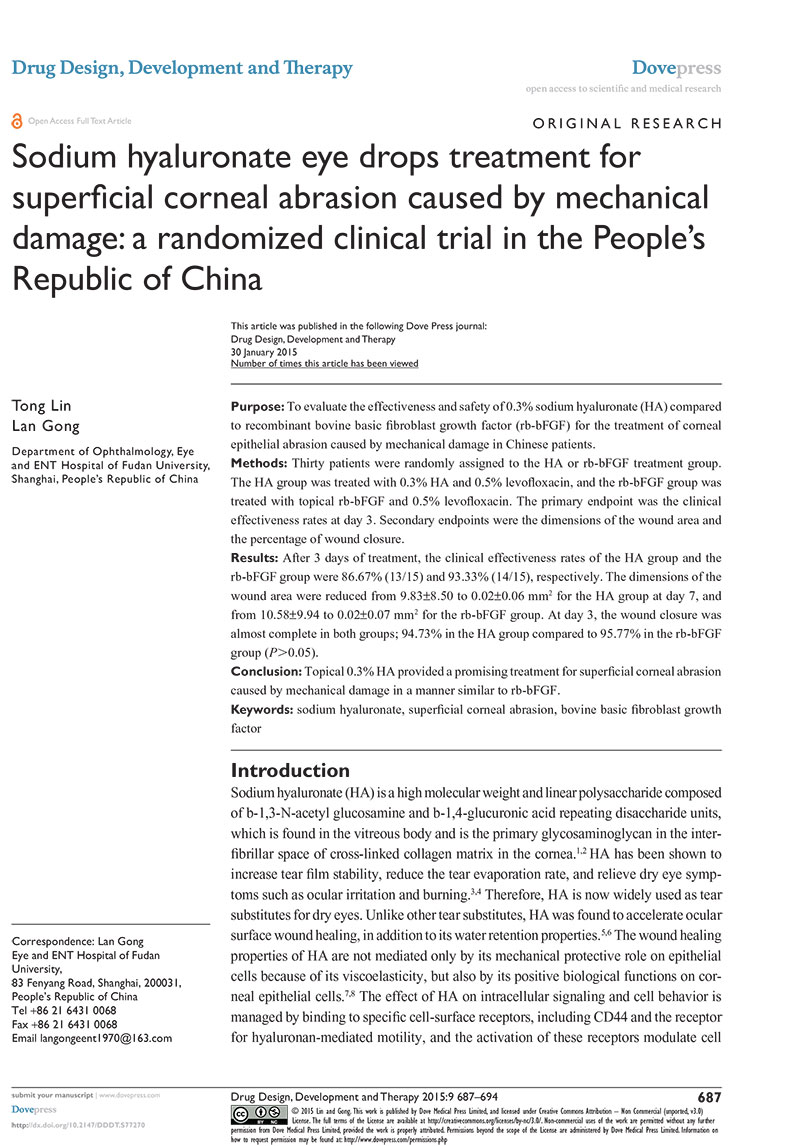
Sodium hyaluronate eye drops effects on superficial corneal abrasion
Sodium hyaluronate eye drops treatment for superficial corneal abrasion caused by mechanical damage: a randomized clinical trial in the People’s Republic of China
Article specifications
This randomized clinical trial was published in 2015 in Drug Design, Development and Therapy Journal (IF 2014:3.028) by Chinese ophthalmologists. The purpose of this study was to evaluate the effectiveness and safety of 0.3% sodium hyaluronate (HA) compared to recombinant bovine basic fibroblast growth factor (rb-bFGF) for the treatment of corneal epithelial abrasion caused by mechanical damage. Participants 18-70 years, with corneal epithelial abrasion (common injuries including nails, branches, contact lenses) were selected. The study period was 7 days on 30 subjects. During treatment period, either 0.3% HA or rb-bFGF were given four times daily, as study drugs to the treatment group and control group. Both groups were also treated with an ophthalmic solution containing 0.5% levofloxacin three times per day in the “study eye”. Follow-up examinations were performed at 1, 3, and 7 days after the first treatment. All of the patients underwent subjective symptom evaluation (stabbing ophthalmalgia, photesthesia, lacrimation, foreign body sensation); slit lamp microscopy examinations including fluorescein staining of the cornea, conjunctival congestion evaluation, and digital image. Visual acuity (VA) was evaluated with logarithm of the minimum angle of resolution (logMAR) VA chart at each follow-up examination. In addition, safety was assessed and compared.
Results
Topical 0.3% HA provided a promising treatment for superficial corneal abrasion caused by mechanical damage in a manner similar to rb-bFGF. No serious adverse events were found in this study.
Tags: china drug design development and therapy Clinical trial 2015
